Feb 14, 2023
Where Have All the Addiction Treatment Centers in New Orleans Gone?
Substance use disorder has reached epidemic levels in the United States, with approximately 20 million Americans suffering from this disease, according to the Recovery Research Institute.
This epidemic is raging in New Orleans, and the options for help are dwindling. Addiction treatment centers, at the core of substance abuse management, are experiencing some complications that make it challenging to guarantee easy access to treatment.
But what are the specific reasons addiction treatment centers in New Orleans are shutting down, and where can those in need find help?
Reasons Behind the Closure of Some Addiction Treatment Centers in New Orleans
Recovery from addiction is a long-term process that requires the expertise of rehab-specific programs to manage acute and potentially dangerous withdrawal symptoms as well as instill skills to help patients overcome relapse. However, as the substance abuse epidemic continues to ravage New Orleans, the city is struggling with a shortage of detox beds.
As of 2019, New Orleans and the surrounding parishes like Jefferson and St.Tammany only had 155 medical detox beds. This is despite the area’s increased drug-related overdose deaths over the years. Experts are concerned that the number of beds available for addiction treatment cannot handle the number of patients seeking addiction recovery.
To put it into perspective, the New Orleans Parish Coroner’s Office reported that drug-related overdose deaths increased by 51%, claiming 365 victims in 2020 compared to 241 in the previous year.
Though several factors led to the addiction treatment centers crisis, the closure of the former Interim LSU Public Hospital — a hospital-based stand-alone medical detox with a 20-bed detox unit — in 2012 due to budget cuts contributed a lot to the issues we see today.
Nearly ten years later, in 2021, New Orleans Mayor LaToya Cantrell and officials from NOLA Detox and Recovery Center got together to open a 36-bed addiction treatment facility in Algiers. The facility focuses on providing personalized addiction treatment based on New Orleans culture, including partnerships with several community programs that implement the city’s people, food, and music.
The Covid-19 Pandemic’s Impact on Addiction Treatment in New Orleans
From early 2020 till now, the world has been fighting the Covid-19 pandemic.
Some measures to contain the virus involved lockdowns and social distancing, which limited the number of people that could gather in one area. While these measures effectively managed the spread of the virus, they were detrimental to businesses and other services that weren’t deemed essential.
During this period, addiction treatment centers in New Orleans had to increase the costs of their services since they had to invest in personal protective gear and teletherapy. As the consumption of drugs and alcohol grew during the pandemic, these facilities were unable to deal with an uptick in patients because of their lack of supplies and staffing.
Many addiction centers in New Orleans cut their budgets and had to dismiss some of their employees to stay open. By cutting back programs and laying off staff, addiction treatment centers could no longer offer the same quality or treat as many people as before, impacting the New Orleans community significantly.
The introduction of social distancing measures meant facilities experienced even lower turnout, especially for outpatient treatment. To adhere to the measures, some addiction centers had to reduce their inpatient capacity, pay infected or quarantined employees, or close their facility due to an outbreak within the addiction center.
Lack of Proper Regulation
Though addiction treatment facilities in New Orleans offer necessary inpatient treatment to patients requiring medical assistance, they are not as regulated as hospitals.
Due to the ever-growing addiction epidemic in the U.S., many experts are calling for oversight of the activities that take place in rehab facilities since some older practices can be classified as unethical and illegal activities.
According to Market Research, the addiction rehab market was worth $42 billion in 2020 and is expected to reach $53 billion in 2025 at a 5.2% annual growth.
With such high revenues, the addiction treatment industry has seen an influx of venture capitalist funding as well as rehab owners without any clinical experience whose sole objective is financial gain rather than patient care.
What was once dominated by family-owned organizations looking to help drug abuse victims through their darkest moments has become a burgeoning business opportunity.
Luckily, this trend of people interested in getting into the substance abuse recovery business strictly for profits is trending downwards.
Family-owned and operated facilities with a focus on patient care and comfort, like NOLA Detox and Recovery Center, are becoming the norm in the Crescent City.
Get Personalized Help at NOLA Detox and Recovery Center
Though substance abuse disorder continues to be a major issue in New Orleans, residents no longer have to leave the city to seek addiction treatment. At NOLA Detox and Recovery Center in Algiers, we provide a hospitality-driven experience that is homier than other treatment centers.
The southern hospitality at NOLA Detox and Recovery Center can be felt the second you walk in the door. The goal is to feel more like you are in a hotel than a hospital by offering amenities such as:
- New Orleans food
- Hot cookies & milk
- A spa away from a 5-star hotel
- Twin beds, but they are extra long + pillow top
Contact NOLA Detox and Recovery Center today to reserve a bed for same-day admission or whenever you/ a loved one is ready to get help.


